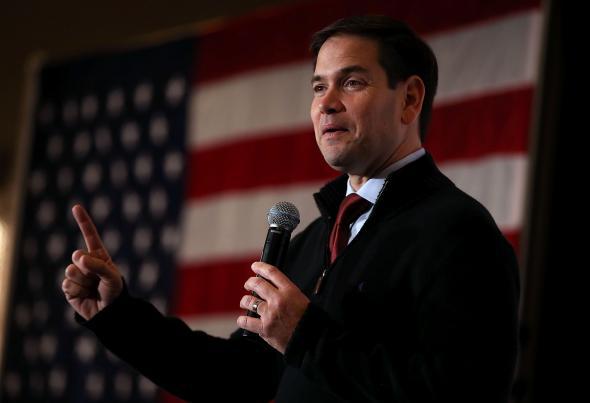A 2002 letter from Marco Rubio lobbying on behalf of his brother-in-law to a state regulator raised questions Wednesday about whether the then-Florida state representative misused his power to help his sister’s ex-convict husband get a real estate license. The Washington Post has the story of Orlando Cicilia, who spent eleven-and-a-half years in federal prison on felony drug trafficking charges, and his ongoing relationship with the now-presidential candidate.
Rubio’s star was on the rise in 2002, as the young lawmaker ascended to the position of majority whip in the Florida State House. Orlando Cicilia had been released from prison 20 months earlier; he was convicted in 1989 of distributing $15 million of cocaine. In the July 1, 2002 letter on his official government letterhead, Rubio recommended Cicilia “without reservation” for a real estate license. The Post points out, in the letter, Rubio failed to mention that Cicilia was married to his sister and living with Rubio’s parents at the time in his childhood home (Cicilia’s home was seized). “I have known Mr. Cicilia for over 25 years,” Rubio wrote. Florida does not prohibit felons from obtaining real estate licenses as some states do, instead it reviews them on a “case-by-case-basis.” Cicilia received a Real Estate Commission hearing on his application two-and-a-half weeks after the letter was dated; the day after the hearing Cicilia was approved for the license.
The Post story raises questions about Rubio’s judgment generally, particularly when it comes to ethics, but is clearly sniffing around for bigger game—the financial link between Rubio and Cicilia. The Post asked Rubio point blank if he had received money from Cicilia and the Florida senator refused to answer. Rubio has faced lingering questions about his personal finances and the Post notes that the $15 million in drug money Cicilia went to prison for was never found. The story doesn’t make the link, but compiles examples that do start to resemble quid a pro quo that Rubio will likely have to explain sooner or later.
